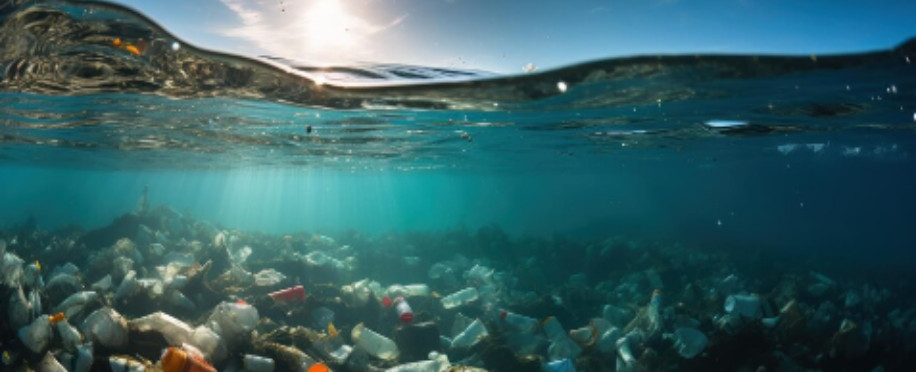Copyright © 2025 lmitac.com All Rights Reserved. Contact - Terms and Conditions - Privacy Policy - Quality Policy - Become an instructor - Vacancies - Sitemap
London Maritime Academy is a trade name for London Premier Groupversion: 2.9.0
London Maritime Academy is a trade name for London Premier Group

Posted on : 2/29/2024, 6:49:25 AM
The international marine plastic pollution crisis is expanding yearly despite all the efforts made by environmental organisations.
Moreover, marine plastic pollution is not something new that we are facing, but rather a result of all the usage of nonrecyclable plastic in various industries and the waste of vessels in the seas.
In this article, we will share updated information about marine plastic pollution, its direct impacts, and innovative solutions to reduce marine plastic pollution with you.
Marine plastic pollution is the term used to refer to the existence of plastic remains in oceans, seas, and other bodies of water. Including all types of plastic materials, starting with small items like bottles and packaging and finishing with more oversized items such as fishing nets.
More than that, marine pollution can be caused by different sources, including:
Land-based activities (such as improper waste disposal, littering, and industrial runoff).
Maritime industries (like fishing and shipping).
Ocean-based activities (such as offshore drilling and aquaculture).
Reducing the harm of marine plastic pollution requires effective strategies that cover all the maritime industry processes, including optimising harbour operations, port management, ship waste control, and any other strategy needed.
We are not discussing marine plastic pollution just to open a random subject but because it is causing real threats to the aquatic ecosystem.
The marine ecosystems are the most impacted by marine plastic pollution through ingestion, entanglement, and habitat destruction.
Marine plastic pollution also impacts food and human health, as it releases chemicals and toxins into the environment that humans interact with and eat from.
This impacts coastal communities’ social life and economy, as they live from fishing, tourism, and other maritime investments, and marine plastic pollution will harm them.
Climate change is a definite result of marine plastic pollution, as all the emissions and ecosystem changes will undoubtedly lead to significant changes.
According to the Maritimes training courses in Rotterdam, it is time to discuss the practical and upcoming solutions to marine plastic pollution and saving our environment and lives.
However, the main point to make these solutions effective is full collaboration among maritime companies and organisations.

Marine plastic solutions must include all bodies of water, including rivers, that will eventually flow into the seas.
Moreover, river cleaning up efforts are crucial as they are a significant source of plastic waste entering the oceans.
Therefore, all environmental organisations are leading awareness campaigns to remove plastics from rivers, prevent pollution from reaching marine environments, and safeguard marine life and ecosystems.
When implementing efficient recycling programs that reduce the amount of plastic waste in oceans, you reduce the impact of plastic usage on the environment.
Promoting recycling will encourage the reuse of plastic materials, conserve resources, and mitigate the environmental impact of plastic pollution.
Eco-friendly products are alternatives that compose quickly and do not harm the environment; moreover, they reduce the demand for conventional plastics.
Thus, all eco-friendly products are considered sustainable alternatives that minimise marine ecosystems and wildlife harm and lead to a cleaner environment.
Single-use plastics are a significant source of marine plastic pollution, whether used in ships, ports, or any other maritime sector.
Furthermore, when opting for reusable items and reducing reliance on single-use plastics such as bags, bottles, and straws, you will play your role in reducing plastic waste and its damaging effects on marine environments.
Implementing and enforcing strict regulations on maritime activities helps prevent pollution from ships, fishing vessels, and offshore industries.
These measures include proper waste management, discharge regulations, and vessel inspections.
Using effective tracking systems enables the monitoring and managing plastic pollution sources and hotspots. That helps in controlling and managing pollution before it becomes a disaster.
Moreover, by tracking pollution data, policymakers can use available resources efficiently and develop targeted interventions to fight marine plastic pollution effectively.
All the marine plastic pollution solutions aim at one final goal: protecting general human health, with practical steps to stop the pollution without causing any damage.
However, if you aim to be a part of this environment-protecting strategy, you must follow the proper training to know the latest trends and practices.